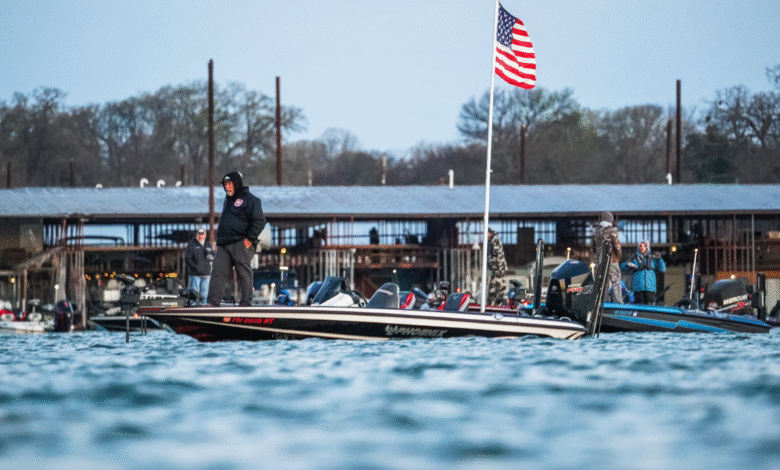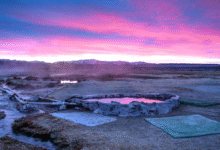Why “Lake Texoma Should Be Capitalized”: A Deep Dive into Names, Norms, and Nuance

Capitalizing Lake Texoma is grammatically correct and essential for SEO, professionalism, and cultural respect. Learn why “Lake Texoma should be capitalized” matters more than you think.
Understanding the Importance of Capitalization in Proper Nouns
Capitalization might seem like a small detail, but when it comes to proper nouns, it plays a significant role in clarity, respect, and grammar. In the case of “Lake Texoma should be capitalized,” the discussion goes beyond just rules; it’s about identity, culture, and correctness. Lake Texoma, a well-known reservoir on the Texas-Oklahoma border, has a name that demands proper representation.
In written language, capitalization is a marker. It tells readers, “Hey, this is a specific place, a real location, not just any lake.” When we fail to capitalize names like Lake Texoma, we inadvertently strip them of their unique identity. It becomes a generic term, robbing it of its significance. Whether you’re a grammar enthusiast or just someone who loves visiting Lake Texoma, understanding why it should always be capitalized matters more than you might think.
What Makes Lake Texoma a Proper Noun?
Lake Texoma is not just a random body of water; it’s a named reservoir. And according to English grammar rules, all proper nouns should be capitalized. Proper nouns refer to specific names of people, places, or things. “Lake” and “Texoma” are part of a single entity’s name—just like “Lake Tahoe” or “Lake Michigan.”
This naming structure isn’t arbitrary. It’s grounded in centuries of language development, where proper names have always been treated with a certain level of grammatical reverence. Capitalizing Lake Texoma is about showing that we recognize it as a specific, named geographical location, not just any ordinary lake. It helps avoid confusion and maintains consistency in written English.
Historical Significance of Lake Texoma
Lake Texoma isn’t just grammatically important—it has historical weight, too. Constructed in the early 1940s by the U.S. Army Corps of Engineers, Lake Texoma has played a crucial role in flood control, water supply, and recreation. The lake is fed by both the Red River and the Washita River, creating a unique geographical and ecological blend.
Its name, a blend of “Texas” and “Oklahoma,” reflects its position straddling the two states. Because of its history and its carefully chosen name, capitalizing “Lake Texoma” isn’t just correct—it’s respectful. Names with cultural and regional significance deserve to be treated properly, and that begins with something as simple as capitalization.
How Capitalization Affects SEO and Online Visibility
From a digital perspective, the phrase “Lake Texoma should be capitalized” touches on more than grammar—it affects online searchability and SEO. Search engines recognize proper nouns and use them to sort relevant content. When Lake Texoma is properly capitalized, it strengthens the legitimacy and accuracy of your content.
Improper capitalization can dilute your SEO effectiveness. For instance, search engines may not associate “lake texoma” with the same level of relevance as “Lake Texoma.” If you’re running a blog, a travel site, or even a local business directory, correct capitalization helps your pages rank higher and attract the right audience.
Capitalization in Journalism and Formal Writing

In journalism, academic writing, and formal documents, proper nouns are treated with particular care. When professionals write about Lake Texoma, you can bet they capitalize it. Why? Because failing to do so not only looks unprofessional, but it also undermines the accuracy of the piece.
Readers rely on journalists and authors to maintain grammatical standards. When you see an article that refers to “lake texoma,” it instantly appears less credible. This is why editors are sticklers about rules like capitalization—it’s not just about aesthetics, it’s about integrity.
Common Mistakes and Misconceptions
One of the most common mistakes in writing is thinking that capitalization doesn’t matter. Some people believe that as long as the word makes sense in context, it’s fine. But that’s not the case when it comes to names like Lake Texoma. Dropping the caps from “Lake Texoma” is like writing “new york” or “grand canyon”—it just looks wrong.
Another misconception is that only the first word in a name needs to be capitalized. Some might write “Lake texoma”—which is still incorrect. Every word that’s part of the proper noun needs to be capitalized unless it’s a minor connecting word (like “of” or “and” in some titles). In this case, both “Lake” and “Texoma” are integral to the name and must be capitalized.
Cultural and Regional Pride Around Lake Texoma
Lake Texoma isn’t just a name—it’s a source of regional pride. Locals from Texas and Oklahoma often have deep ties to the lake, whether through fishing, boating, camping, or community events. Capitalizing the name shows respect for that local identity. It’s a subtle way of acknowledging that this place matters.
When you write about a place like Lake Texoma, you’re not just referencing geography—you’re honoring memories, traditions, and livelihoods. Capitalization may seem minor, but it reflects the value you place on the location and its people.
Lake Texoma in Travel Guides and Tourism Content
Look through any travel guide, tourism site, or official brochure, and you’ll always see it listed as “Lake Texoma.” That’s not just a branding decision—it’s a grammatical necessity. Travel writing especially depends on clear, correct language to inspire and inform readers.
Misrepresenting a place by using incorrect capitalization can confuse readers or make the content seem untrustworthy. If you’re trying to attract tourists or promote your lakeside cabin rental, getting the name right is the first step to building credibility and appeal.
Why Teachers and Students Should Care
For educators and students, especially those in regions near Lake Texoma, understanding the importance of capitalization is part of a broader lesson in writing and communication. Teachers can use Lake Texoma as a real-world example to teach proper nouns and grammar rules.
Students learning about grammar can easily remember the rule when they connect it to a familiar and beloved location. Saying “Lake Texoma should be capitalized” is not just a grammatical rule—it becomes a learning tool and a point of connection between academics and real life.
Capitalization in Legal and Government Documents
Legal and government documents are typically some of the most precise forms of writing, and they always capitalize names like Lake Texoma. This is because precision matters immensely in law and policy. Misnaming a location could lead to misunderstandings, loopholes, or even legal disputes.
Whether it’s water rights, land use policies, or emergency planning, Lake Texoma is often mentioned in official documents. Capitalizing it is not just stylistic—it’s functional and necessary for clarity and enforcement.
Style Guides and Official Grammar Rules
If you look at grammar style guides like the AP Stylebook or the Chicago Manual of Style, they are crystal clear: proper nouns must be capitalized. This includes geographical names such as lakes, mountains, and cities. So according to every major style authority, Lake Texoma should be capitalized.
It’s not a matter of opinion; it’s a widely agreed-upon rule in professional writing. Following these guidelines ensures that your writing meets the highest standards and maintains a consistent tone and appearance.
Social Media and User-Generated Content
In today’s digital age, much of the content about places like Lake Texoma is created by users on platforms like Instagram, TikTok, or Facebook. Unfortunately, with casual typing habits, capitalization often falls by the wayside. But even on social media, capitalizing names like Lake Texoma enhances clarity and professionalism.
When you use the correct form, you also increase the chances that your content will be found and appreciated by a wider audience. Whether it’s a hashtag or a caption, “Lake Texoma” looks better, reads better, and respects the subject matter more than “lake texoma.”
Capitalization and Branding for Local Businesses
If you run a business near Lake Texoma—whether it’s a boat rental, a bait shop, or a local diner—how you present your brand matters. Using “Lake Texoma” in your marketing materials gives your business a more professional and polished appearance.
It also makes your services easier to find online. Potential customers searching for “Lake Texoma fishing guides” are more likely to trust and click on listings that use proper grammar and spelling. Don’t miss out on credibility just because of a lowercase “l.”
Educational Resources and Signage
Even physical signs, park brochures, and educational pamphlets around the lake use “Lake Texoma” in full capitalization. That’s because people expect to see proper names treated properly. Imagine arriving at a state park and seeing “welcome to lake texoma” on the sign. It would feel jarring and unprofessional.
Correct capitalization on signs not only looks better but also aligns with the broader educational goal of promoting literacy and proper language use. Consistency helps reinforce correct spelling and grammar among both children and adults.
International Recognition and Mapping Services

Global mapping platforms like Google Maps or Apple Maps always use “Lake Texoma” with capitalization. This consistency ensures that users around the world can easily recognize the location. International travelers may not know much English, but capitalized names stand out as important landmarks.
When these services capitalize “Lake Texoma,” it adds to the global recognition of the site. It confirms that this is a real, specific, and valued location—worthy of accurate representation both digitally and on paper.
Supporting Grammar Education with Real Examples
When teaching grammar, it’s always more effective to use real-world examples. And “Lake Texoma should be capitalized” is a great teaching moment. It shows how rules apply beyond textbooks and can help reinforce learning through tangible, familiar references.
Using Lake Texoma in grammar exercises or writing prompts can help students better understand the rule and remember it. Plus, it makes learning feel more relevant and engaging, especially for students living near the lake.
Frequently Asked Questions (FAQs)
Why should Lake Texoma be capitalized?
Because it’s a proper noun referring to a specific geographic location. Capitalizing it maintains grammatical correctness and shows respect for the place.
Is it ever okay to write “lake texoma” in lowercase?
Only in casual conversation, but even then, it’s better to capitalize it to avoid confusion and maintain clarity.
How does capitalization impact SEO for Lake Texoma-related content?
Search engines prioritize correctly capitalized proper nouns, making your content more searchable and trustworthy.
What if I see “lake texoma” written in lowercase in an article?
That’s likely an editorial oversight or casual writing. In professional and academic contexts, it should always be capitalized.
Does this rule apply to other lakes as well?
Absolutely. Any named geographical feature—Lake Tahoe, Lake Superior, etc.—should be capitalized.
Conclusion: Respecting the Name, One Capital Letter at a Time
Capitalizing “Lake Texoma” may seem like a small detail, but it reflects a broader respect for grammar, geography, and community. From boosting SEO to maintaining professionalism and honoring local pride, the reasons are compelling. So next time you write about it, remember: Lake Texoma should be capitalized.

